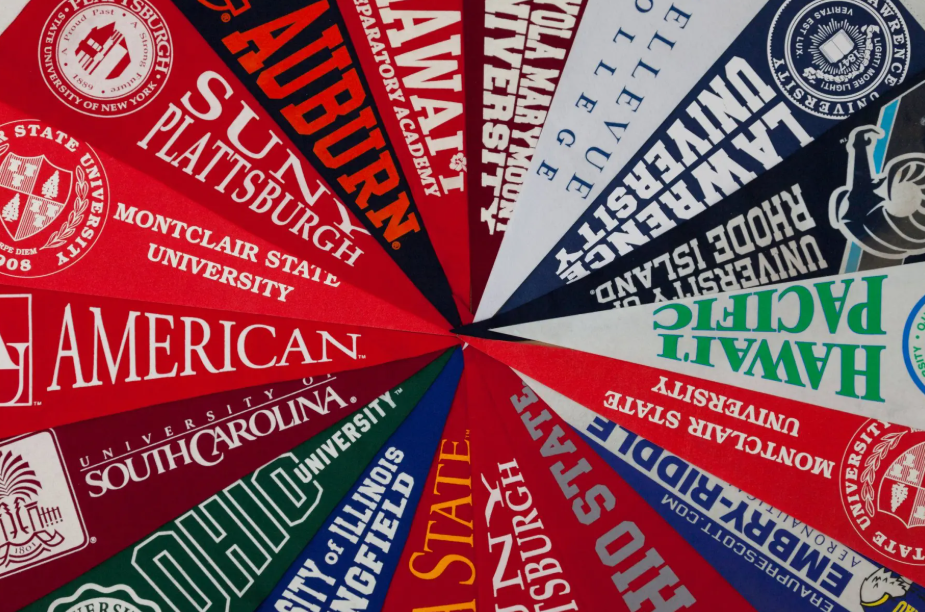
The notion of a “dream school” is baked into the admissions process, often framing admission to elite institutions as a prize to be won. However, this mindset overlooks the true purpose of higher education and paves the way for student disillusionment. A closer scrutiny reveals that an obsession with institutional prestige is misguided; genuine educational success hinges not on rankings, but on the quality of the learning experience and personal growth it fosters.
This narrow focus exerts significant psychological pressure. In a survey of more than 325,000 undergraduates, half reported feeling “a lot” of pressure to choose a major based on earning potential rather than personal passion. As psychologist Richard Weissbourd observes, the system demands that students present a polished life plan before they’ve had a chance to explore. Unsurprisingly, this relentless pressure to perform and project certainty is inextricably linked to worsening mental health among college-age adults, with rates of anxiety and depression being particularly acute at so-called “dream schools.”
In contrast, students who land somewhere less obvious often discover more meaningful opportunities. At times, not getting into a top-choice school brings a surprising sense of relief, freeing students from the unrelenting status chase. For instance, one student who transferred from a prestigious university to a less renowned college found that genuine fulfillment stemmed not from institutional branding but from finding the right fit—he encountered professors who actively mentored his research and joined a more collaborative learning community. Similarly, another high-achieving student discovered that a university which enthusiastically welcomed and guided her provided superior support for competitive scholarship applications and professional development compared to her initial, more prestigious choice. In both cases, a sense of recognition and being supported proved more valuable than institutional reputation.
We must therefore shift the conversation from “What’s your dream school?” to “What’s your dream college experience?” A truly rewarding education relies on tangible components: robust support systems to prevent first-year dropout, accessible advice from committed faculty, and practical career preparation through internships and research. The fixation on a single, highly selective dream school narrows opportunity and heightens stress. By focusing instead on the essential conditions that help students flourish—strong support, meaningful connections, and real-world skills—we can better connect the college search with education’s true purpose: to help young people build the foundation for a fulfilling life, not merely a highly paid one.
原创编写 版权所有 侵权必究! 每日更新 个性化阅读 英语飙升!
1.1.What is the fundamental flaw in the “dream school” mindset?
A It overemphasizes the importance of personal growth.
B It confuses educational purpose with competitive victory.
C It ignores the objective data from institutional rankings.
D It questions the quality of elite institutions.
解析:选B。B 细节理解题。第一段指出,“梦想学校”思维将录取视为“待赢取的奖品(a prize to be won)”,而这“忽视了高等教育的真正目的(overlooks the true purpose)”。B选项“将教育目的与竞争胜利相混淆”准确概括了这一根本缺陷。A、C与段落观点相反,D在段落中未提及。故选B。
2.2.What consequence does Richard Weissbourd identify?
A Students lack career planning skills.
B Young people face excessive parental pressure.
C The system forces premature life decisions.
D Social media creates unrealistic expectations.
解析:选C。C 细节理解题。第二段中Richard Weissbourd指出“系统要求学生在有机会探索之前就提出完美的人生计划”,C选项“系统迫使过早做出人生决定”准确概括了这一后果。A未提及,B和D虽在文中出现但不是Weissbourd的直接观点。故选C。
3.3.What might students lose by choosing colleges for reputation according to the text?
A Pressure to perform well academically.
B Opportunities for personal exploration.
C Access to prestigious scholarship programs.
D Chances to join competitive learning environments.
解析:选B。B 推理判断题。第三段通过具体案例表明,当学生摆脱对学校声誉的执念后,他们获得了探索的自由并在更适合的环境中茁壮成长。由此可反向推断,过分追求声誉可能会导致失去个人探索的机会。B选项准确捕捉到了这一潜在损失。A是选择声誉学校会加剧而非失去的,C和D在声誉学校中可能更容易获得,因此不符合题意。故选B。
4.4.The word “fixation” (Para. 4) most nearly means ______.
A healthy interest
B logical choice
C balanced view
D obsessive focus
解析:选D。D 词义猜测题。第四段划线单词所在句指出“对单一梦想学校的_____会限制机会、加剧压力”。上下文表明,作者在批判一种不健康的观念,且“fixation”带来的全是负面后果(narrows opportunity, heightens stress)。因此,这必然是一种过度的、不健康的关注。同时,第四段开头呼吁的“转变对话”也反衬出当前状态的固执。故D选项“痴迷的关注”最贴合上下文。故选D。
5.5.What is the most appropriate title for the passage?
A The Mental Health Crisis in Universities
B Beyond the Dream School Myth
C How to Choose the Right Major
D The Truth About Elite Education
解析:选B。B 主旨大意题。全文围绕批判“梦想学校”迷思、倡导关注教育本质体验展开,B选项“超越梦想学校迷思”最全面准确地概括了文章核心内容。A只涉及部分内容,C和D均偏离文章主旨。故选B。